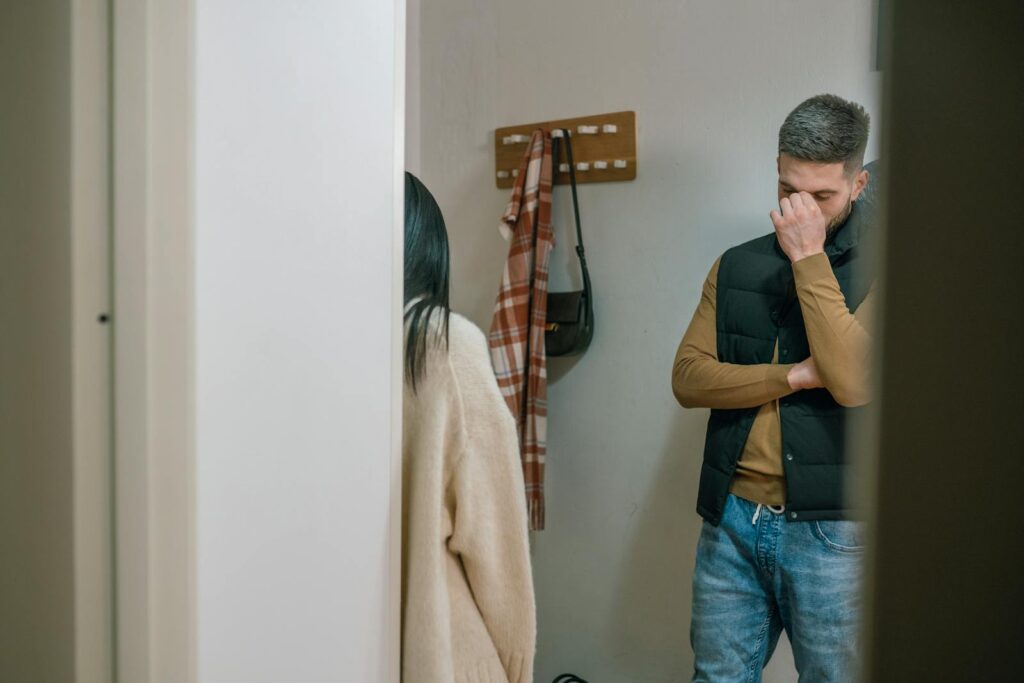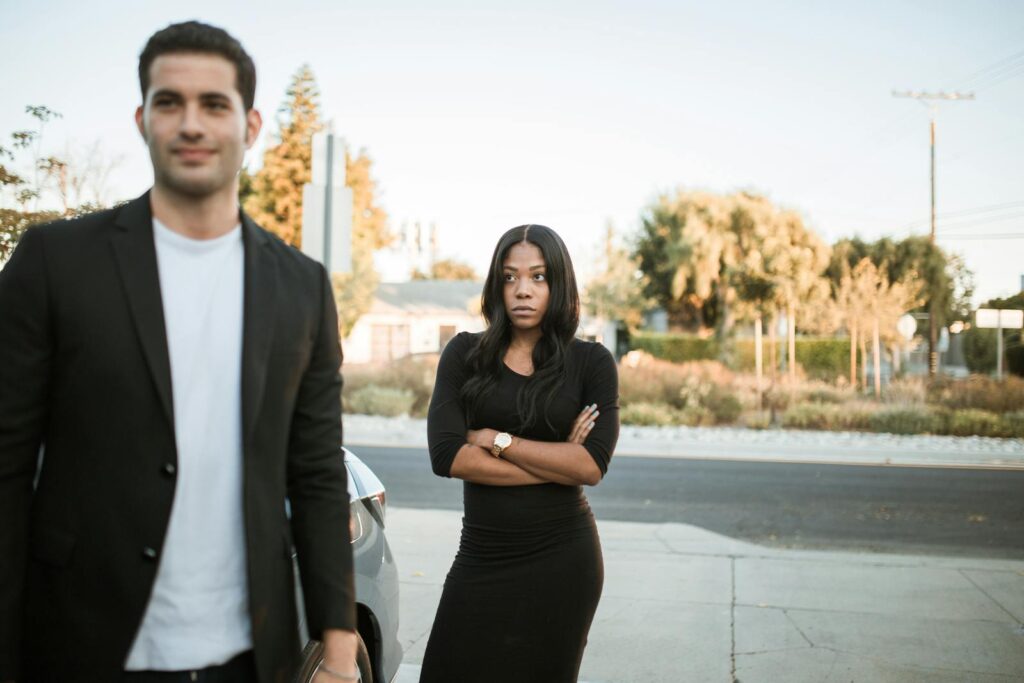
Falling for someone can make it hard to see what’s right in front of you. You focus on the excitement and overlook the patterns that might later harm you. The warning signs aren’t always loud. Sometimes they show up in how they talk, how they listen, or how they make you feel afterward. Catching them early doesn’t ruin love—it protects it from becoming something that drains you.
They Make Jokes That Cut Deep

At first, it sounds playful. They tease you about things others wouldn’t mention, and you laugh along to keep it light. Then one day, it lands harder than you expect. You see the grin that follows, the shrug when you call it out. They say you can’t take a joke, but it’s not a joke when it stings every time. That’s not teasing anymore—it’s power dressed as humor.
They Never Ask About Your Day

You tell them stories, but they rarely ask questions back. They nod, change the topic, or check their phone mid-sentence. It feels small, but it builds up over time. You start talking less, not because you don’t want to, but because it feels pointless. A partner who doesn’t show curiosity about your life won’t suddenly start caring later. The disinterest usually deepens with time.
They Speak Poorly About Their Exes

It’s fine if someone’s past relationships ended badly. However, when every story portrays them as the victim, it’s a sign that they avoid self-reflection. Individuals who consistently blame others tend to repeat the same mistakes. If every ex was “crazy” or “toxic,” there’s a good chance they never owned their part in the chaos. Eventually, those same complaints might be made about you.
They Interrupt Constantly

You start a thought, and they jump in. You try again, and it happens once more. After a while, you stop finishing sentences. Being around someone who always cuts you off makes you feel unheard. It’s not impatience—it’s disregard. People who value what you have to say don’t need to dominate every conversation. They leave space for your voice, too.
They Get Defensive Over Everything

Simple conversations turn into arguments. You point out something small—like a forgotten text—and they act attacked. You end up apologizing for even mentioning it. This pattern leaves you walking on eggshells, afraid to bring up how you feel. Defensiveness early on often gives way to blame later. A healthy partner should be able to hear feedback without turning it into a fight.
They Rush the Relationship

You barely know them, yet they’re already talking about forever. At first, it feels romantic—someone this excited about you must mean it. But that rush isn’t love, it’s control. They want closeness before trust has even a chance to grow. When everything moves too fast, it’s easy to miss what’s missing. If it feels like you’re being swept up, you probably are.
They Never Apologize Genuinely

They’ll say something that sounds like an apology, but it never lands right. You still feel blamed, like their words are there to move past the moment. Real remorse doesn’t twist the focus back to you—it takes ownership. When someone never truly says, “I was wrong,” it erodes the trust between you. Without accountability, every apology starts to sound hollow.
They Avoid Talking About Feelings

Whenever things get emotional, they check out. They’ll crack a joke, change the topic, or look at their phone until it passes. You end up carrying both sides of the conversation while they maintain a wall of silence. It’s lonely being with someone who won’t open up. You can’t connect with a person who hides behind silence every time things start to matter.
They Flirt With Others in Front of You

They brush it off as harmless, but it doesn’t feel that way. You catch the long looks, the little comments, the constant attention they give others. You tell yourself you’re overthinking, but your gut knows better. Some people need outside validation more than they need respect. And if they can’t stop testing your comfort early on, they won’t stop later either.
They Can’t Handle Your Success

You tell them something good, and instead of sharing your joy, they pull away. Maybe they make a small joke to dull the shine, or they barely react at all. It’s confusing at first—you expect pride, not discomfort. Over time, you start shrinking your wins so they’ll stay close. That’s not love. A good partner claps for you even when it’s not their turn.
They Keep Score

They remind you of favors, tally up who did what, or expect repayment for kindness. Relationships aren’t transactions, but they treat them like one. After a while, love starts to feel like debt. If someone can’t give freely without expecting something back, it’s not generosity—it’s leverage. Real care isn’t about even numbers; it’s about intention.
They Talk Down to Service Workers

It’s a small moment—a snappy tone with a waiter, a sarcastic comment at the cashier. But it tells you everything. How someone treats people they don’t need reveals how they’ll treat you once comfort sets in. Courtesy isn’t selective. If they can be kind only when it benefits them, that kindness won’t last long once you stop being new.
They Disappear During Hard Times

When life gets stressful, they go quiet. Calls go unanswered, plans get postponed, and suddenly you’re alone. They reappear when things are easier, acting like nothing happened. Being there only for the fun parts isn’t love; it’s convenience. You’ll end up carrying the weight alone while they drift in and out. That kind of pattern doesn’t change—it just hurts more later.
They Always Have an Excuse

Work, timing, their past—there’s always something standing in the way of effort. Promises fade into explanations. You start to feel foolish for expecting consistency. Excuses are easy; effort isn’t. A person who truly wants to make it work will find small ways to show up, even when life is messy—someone who doesn’t want to wake up ready to try suddenly.
You Feel Smaller Around Them

It’s not obvious at first. A few comments, a few dismissive reactions, and soon you start questioning yourself more than usual. You shrink your opinions, watch your words, and adjust who you are to keep the peace. The right person makes you feel comfortable being yourself. The wrong one makes you doubt you ever knew who that was. That unease is the earliest sign of something bad.

